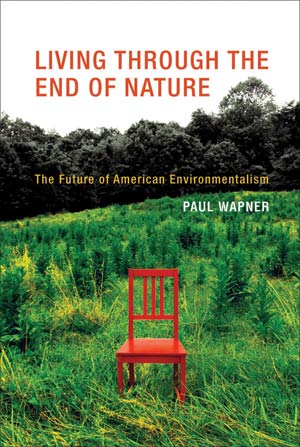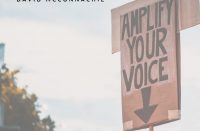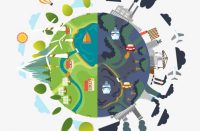You are probably aware that nature is dead. This may be why you are gloomy all the time. We tried so hard to ensure that biodiversity wasn’t lost and climate change didn’t spiral (further) out of control, but only an extreme idealist can maintain the illusion any longer. We have lost. Species disappear on a daily basis and we fail to enact even a semblance of the climate change policies required to stem the tide. Some of us have even surrendered to the dark side of fabricated landscapes and a geo-engineered Earth. If you can’t beat ’em, join ’em.
You are probably aware that nature is dead. This may be why you are gloomy all the time. We tried so hard to ensure that biodiversity wasn’t lost and climate change didn’t spiral (further) out of control, but only an extreme idealist can maintain the illusion any longer. We have lost. Species disappear on a daily basis and we fail to enact even a semblance of the climate change policies required to stem the tide. Some of us have even surrendered to the dark side of fabricated landscapes and a geo-engineered Earth. If you can’t beat ’em, join ’em.
Not so fast. There is hope, but to realize it we may need to jettison our idea of nature itself, along with our apocalyptic pessimism. Paul Wapner, director of the Global Environmental Politics Program at American University in Washington, DC, makes the counter-intuitive but compelling case that environmentalism can become stronger if we accept that its philosophical underpinnings have been problematic all along – and are even more so today. His argument isn’t entirely new, but Living Through the End of Nature: The Future of American Environmentalism is a remarkably clear introduction to what is at stake.
For most environmentalists, the divide between nature and humanity has been sacrosanct, with the former being the unequivocal home of the sacred. The desire to better align with nature as the source of the true, good, right and beautiful has animated efforts to conserve wilderness and limit climate change. But human influence reaches everywhere on the globe. Wapner effectively demonstrates that the “dream of naturalism,” as he calls it, has definitively failed.
That might embolden those holding what Wapner terms the “dream of mastery.” Evidence of our ability to control nature abounds. We, surely, are the measure of the true, the good, right and beautiful! We simply need to free ourselves from the last constraints of nature. Yet we know this dream is illusory too.
One thing is sure: both dreams invoke a quasi-theological divide between nature and humanity. Wapner argues that we need to move beyond these two “metaphoric poles” and the paralysis they create to find a “middle path” (one of many Buddhist-inspired metaphors in the book), accepting that while we have irrevocably changed the planet, we are not its masters.
Examining the cases of wilderness and climate change in detail, he delineates a “postnature” hybrid of humanity and biology. Here, humanity doesn’t simply march out into nature, but becomes increasingly blended with it. This might seem to encourage political ambiguity. For Wapner, however, it reflects with greater integrity the paradoxes and tensions we actually inhabit when we “manage” nature reserves or acknowledge the “wild within” ourselves. He embraces this “decisive uncertainty.”
Rather than simplistically align ourselves with or against nature, he asserts, we must engage creatively to co-evolve with it. As grandiose as this ambition may appear, Wapner argues that its focus on relationship rather than apartness actually increases the value of wildness. While his practical suggestions include a fair slice of what environmentalists already call for (wilderness corridors for wildlife, green energy), Wapner urges us to move beyond old theologies to discover a loving, nuanced and evolving relationship with the world we inhabit.
Living Through the End of Nature: The Future of American Environmentalism, Paul Wapner, Cambridge, Massachusetts: MIT Press, 2010, 272 pages
This review originally appeared in EcoBooks, Issue 37.3. Subscribe now to get more book reviews in your mailbox!
Reviewer Information
Brendon Larson, a professor in the Department of Environment and Resource Studies at the University of Waterloo, expects to ruffle some feathers with his unconventional view on invasive species. His final lines are offered with apologies to Pablo Neruda’s Book of Questions.












